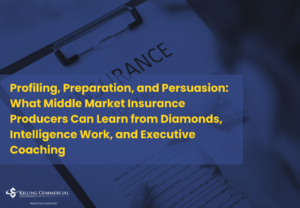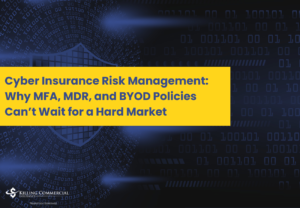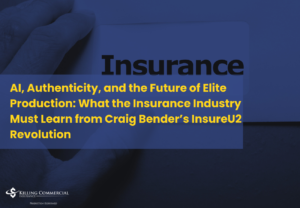
Profiling, Preparation, and Persuasion: What Middle Market Insurance Producers Can Learn from Diamonds, Intelligence Work, and Executive Coaching
In the middle market, producers don’t lose because the competition has better pricing.
They lose because the competition understands people better—their motivations, their fears, their priorities, and what makes them say yes.








